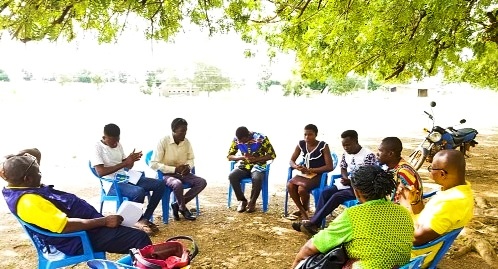
Girls programme reduces teenage pregnancies in U/E
The Upper East Regional Coordinating Director, Alhaji Mahamadu Azanko, says the Adolescent Girls Programme — initiated by the United Nations Populations Fund (UNFPA) — has led to a reduction in maternal and neonatal mortality and teenage pregnancies in the region.
He stresses that it has also improved access to reproductive health and family planning education, services and commodities, and acceptance of family planning by indigenes.
Advertisement
He further states that it has consequently led to the prevention of unwanted pregnancies and related abortions, and a reduction in the prevalence of sexually transmitted diseases (STDs).
He said the programme was supporting and complementing the government’s delivery of a national reproductive health agenda, saying reproductive health was key to socio-economic development.
Alhaji Azanko was addressing a team from the UNFPA who called on him ahead of a scheduled spotlight monitoring of the Complementary Adolescent Girls Programme in the Upper East Region.
Monitoring
The monitoring, which was carried out last Tuesday and Wednesday, was to enable the UNFPA team members to familiarise themselves with the progress of the implementation and possible challenges, and to explore other areas of cooperation.
Mr Azanko said the Regional Coordinating Council (RCC) was happy to be partnering the UNFPA regarding the programme, especially in relation to the sensitisation and public education on adolescent sexual reproductive health to help reduce or curtail the burden of teenage pregnancies.
A Programme Specialist and Head of the Tamale decentralised office of the UNFPA, Mr Mammah Tenii, expressed gratitude to the RCC for coordinating UNFPA’s sub-implementing partners such as the National Youth Authority (NYA), the Ghana Health Service (GHS), the Domestic Violence and Victim Support Unit (DOVVSU) and the Department of Gender under the Ministry of Gender, Children and Social Protection.
“The project is to help scale up existing strategies and interventions to further integrate policy response,” he said.
Mr Tenii said the project was expected to serve the needs of and deal with the vulnerabilities of adolescents, particularly girls, to help tackle teenage pregnancies.
He said it would enable the UNFPA to provide a support model to facilitate adolescent girls' access to gender-responsive and sexuality education.
Specific activities include formation and launch of girls’ clubs, interactive mentorship and reading sessions, as well as training of sexuality education facilitators.
Why girls
Throwing more light on the programme, the Coordinator for the programme at UNFPA, Ms Esi Awotwi, explained that the period of adolescence profoundly influenced girls’ future potential and life outcomes, describing the period as a key transition from girlhood to womanhood; from primary to secondary education; from education to work and family life.
She said it made it a critical time in their lives and, therefore, they needed to be empowered with all the information to enable them to make informed decisions.
“Coupled with gender inequality and poverty, those transitions often expose girls to a higher chance of dropping out of school, child marriage, sexual and gender-based violence, abuse and sexually transmitted infections.
“Other risks are adolescent pregnancy, obstetric fistula and maternal mortality, anaemia, among others. The risks and vulnerabilities facing adolescent girls have been increasingly researched and recognised, resulting in prioritisation of girls’ issues by different government policies,” she said.
Writer’s email: [email protected]